- Home
- Robert Jordan
The Eye of the World Page 15
The Eye of the World Read online
Page 15
“How long will my father sleep?” he asked at last. “I . . . I have to tell him. He shouldn’t just wake and find me gone.” He thought he heard Lan give a sigh of relief. He looked at the Warder curiously, but Lan’s face was as expressionless as ever.
“It is unlikely he will wake before we depart,” Moiraine said. “I mean to go soon after full dark. Even a single day of delay could be fatal. It will be best if you leave him a note.”
“In the night?” Rand said doubtfully, and Lan nodded.
“The Halfman will discover we are gone soon enough. There is no need to make things any easier for it than we must.”
Rand fussed with his father’s blankets. It was a very long way to Tar Valon. “In that case. . . . In that case, I had better go find Mat and Perrin.”
“I will attend to that.” Moiraine got to her feet briskly and donned her cloak with suddenly restored vigor. She put a hand on his shoulder, and he tried very hard not to flinch. She did not press hard, but it was an iron grip that held him as surely as a forked stick held a snake. “It will be best if we keep all of this just among us. Do you understand? The same ones who put the Dragon’s Fang on the inn door might make trouble if they knew.”
“I understand.” He drew a relieved breath when she took her hand away.
“I will have Mistress al’Vere bring you something to eat,” she went on just as if she had not noticed his reaction. “Then you need to sleep. It will be a hard journey tonight even if you are rested.”
The door closed behind them, and Rand stood looking down at Tam—looking at Tam, but seeing nothing. Not until that very minute had he realized that Emond’s Field was a part of him as much as he was a part of it. He realized it now because he knew that was what he had felt tearing loose. He was apart from the village, now. The Shepherd of the Night wanted him. It was impossible—he was only a farmer—but the Trollocs had come, and Lan was right about one thing. He could not risk the village on the chance Moiraine was wrong. He could not even tell anyone; the Coplins really would make trouble about something like that. He had to trust an Aes Sedai.
“Don’t wake him, now,” Mistress al’Vere said, as the Mayor shut the door behind his wife and himself. The cloth-covered tray she carried gave off delicious, warm smells. She set it on the chest against the wall, then firmly moved Rand away from the bed.
“Mistress Moiraine told me what he needs,” she said softly, “and it does not include you falling on top of him from exhaustion. I’ve brought you a bite to eat. Don’t let it get cold, now.”
“I wish you wouldn’t call her that,” Bran said peevishly. “Moiraine Sedai is proper. She might get mad.”
Mistress al’Vere gave him a pat on the cheek. “You just leave me to worry about that. She and I had a long talk. And keep your voice down. If you wake Tam, you’ll have to answer to me and Moiraine Sedai.” She put an emphasis on Moiraine’s title that made Bran’s insistence seem foolish. “The two of you keep out of my way.” With a fond smile for her husband, she turned to the bed and Tam.
Master al’Vere gave Rand a frustrated look. “She’s an Aes Sedai. Half the women in the village act as if she sits in the Women’s Circle, and the rest as if she were a Trolloc. Not a one of them seems to realize you have to be careful around Aes Sedai. The men may keep looking at her sideways, but at least they aren’t doing anything that might provoke her.”
Careful, Rand thought. It was not too late to start being careful. “Master al’Vere,” he said slowly, “do you know how many farms were attacked?”
“Only two that I’ve heard of so far, including your place.” The Mayor paused, frowning, then shrugged. “It doesn’t seem enough, with what happened here. I should be glad of it, but. . . . Well, we’ll probably hear of more before the day is out.”
Rand sighed. No need to ask which farms. “Here in the village, did they. . . . I mean, was there anything to show what they were after?”
“After, boy? I don’t know that they were after anything, except maybe killing us all. It was just the way I said. The dogs barking, and Moiraine Sedai and Lan running through the streets, then somebody shouted that Master Luhhan’s house and the forge were on fire. Abell Cauthon’s house flared up—odd that; it’s nearly in the middle of the village. Anyway, the next thing the Trollocs were all among us. No, I don’t think they were after anything.” He gave an abrupt bark of a laugh, and cut it short with a wary look at his wife. She did not look around from Tam. “To tell the truth,” he went on more quietly, “they seemed almost as confused as we were. I doubt they expected to find an Aes Sedai here, or a Warder.”
“I suppose not,” Rand said, grimacing.
If Moiraine had told the truth about that, she probably had told the truth about the rest, too. For a moment he thought about asking the Mayor’s advice, but Master al’Vere obviously knew little more about Aes Sedai than anyone else in the village. Besides, he was reluctant to tell even the Mayor what was going on—what Moiraine said was going on. He was not sure if he was more afraid of being laughed at or being believed. He rubbed a thumb against the hilt of Tam’s sword. His father had been out into the world; he must know more about Aes Sedai than the Mayor did. But if Tam really had been out of the Two Rivers, then maybe what he had said in the Westwood. . . . He scrubbed both hands through his hair, scattering that line of thought.
“You need sleep, lad,” the Mayor said.
“Yes, you do,” Mistress al’Vere added. “You’re almost falling down where you stand.”
Rand blinked at her in surprise. He had not even realized she had left his father. He did need sleep; just the thought set off a yawn.
“You can take the bed in the next room,” the Mayor said. “There’s already a fire laid.”
Rand looked at his father; Tam was still deep in sleep, and that made him yawn again. “I’d rather stay in here, if you don’t mind. For when he wakes up.”
Sickroom matters were in Mistress al’Vere’s province, and the Mayor left it to her. She hesitated only a moment before nodding. “But you let him wake on his own. If you bother his sleep. . . .” He tried to say he would do as she ordered, but the words got tangled in yet another yawn. She shook her head with a smile. “You will be asleep yourself in no time at all. If you must stay, curl up next to the fire. And drink a little of that beef broth before you doze off.”
“I will,” Rand said. He would have agreed to anything that kept him in that room. “And I won’t wake him.”
“See that you do not,” Mistress al’Vere told him firmly, but not in an unkindly way. “I’ll bring you up a pillow and some blankets.”
When the door finally closed behind them, Rand dragged the lone chair in the room over beside the bed and sat down where he could watch Tam. It was all very well for Mistress al’Vere to talk about sleep—his jaws cracked as he stifled a yawn—but he could not sleep yet. Tam might wake at any time, and maybe only stay awake a short while. Rand had to be waiting when he did.
He grimaced and twisted in the chair, absently shifting the sword hilt out of his ribs. He still felt backward about telling anyone what Moiraine had said, but this was Tam, after all. This was. . . . Without realizing it he set his jaw determinedly. My father. I can tell my father anything.
He twisted a little more in the chair and put his head against the chairback. Tam was his father, and nobody could tell him what to say or not say to his father. He just had to stay awake until Tam woke up. He just had to. . . .
CHAPTER
9
Tellings of the Wheel
Rand’s heart pounded as he ran, and he stared in dismay at the barren hills surrounding him. This was not just a place where spring was late in coming; spring had never come here, and never would come. Nothing grew in the cold soil that crunched under his boots, not so much as a bit of lichen. He scrambled past boulders, twice as tall as he was; dust coated the stone as if never a drop of rain had touched it. The sun was a swollen, blood-red ball, more fiery than on the hott
est day of summer and bright enough to sear his eyes, but it stood stark against a leaden cauldron of a sky where clouds of sharp black and silver roiled and boiled on every horizon. For all the swirling clouds, though, no breath of breeze stirred across the land, and despite the sullen sun the air burned cold like the depths of winter.
Rand looked over his shoulder often as he ran, but he could not see his pursuers. Only desolate hills and jagged black mountains, many topped by tall plumes of dark smoke rising to join the milling clouds. If he could not see his hunters, though, he could hear them, howling behind him, guttural voices shouting with the glee of the chase, howling with the joy of blood to come. Trollocs. Coming closer, and his strength was almost gone.
With desperate haste he scrambled to the top of a knife-edged ridge, then dropped to his knees with a groan. Below him a sheer rock wall fell away, a thousand-foot cliff plummeting into a vast canyon. Steamy mists covered the canyon floor, their thick gray surface rolling in grim waves, rolling and breaking against the cliff beneath him, but more slowly than any ocean wave had ever moved. Patches of fog glowed red for an instant as if great fires had suddenly flared beneath, then died. Thunder rumbled in the depths of the valley, and lightning crackled through the gray, sometimes striking up at the sky.
It was not the valley itself that sapped his strength and filled the empty spaces left with helplessness. From the center of the furious vapors a mountain thrust upward, a mountain taller than any he had ever seen in the Mountains of Mist, a mountain as black as the loss of all hope. That bleak stone spire, a dagger stabbing at the heavens, was the source of his desolation. He had never seen it before, but he knew it. The memory of it flashed away like quicksilver when he tried to touch it, but the memory was there. He knew it was there.
Unseen fingers touched him, pulled at his arms and legs, trying to draw him to the mountain. His body twitched, ready to obey. His arms and legs stiffened as if he thought he could dig his fingers and toes into the stone. Ghostly strings entwined around his heart, pulling him calling him to the spire mountain. Tears ran down his face, and he sagged to the ground. He felt his will draining away like water out of a holed bucket. Just a little longer, and he would go where he was called. He would obey, do as he was told. Abruptly he discovered another emotion: anger. Push him, pull him, he was not a sheep to be prodded into a pen. The anger squeezed itself into one hard knot, and he clung to it as he would have clung to a raft in a flood.
Serve me, a voice whispered in the stillness of his mind. A familiar voice. If he listened hard enough he was sure he would know it. Serve me. He shook his head to try to get it out of his head. Serve me! He shook his fist at the black mountain. “The Light consume you, Shai’tan!”
Abruptly the smell of death lay thick around him. A figure loomed over him, in a cloak the color of dried blood, a figure with a face. . . . He did not want to see the face that looked down at him. He did not want to think of that face. It hurt to think of it, turned his mind to embers. A hand reached toward him. Not caring if he fell over the edge, he threw himself away. He had to get away. Far away. He fell, flailing at the air, wanting to scream, finding no breath for screaming, no breath at all.
Abruptly he was no longer in the barren land, no longer falling. Winter-brown grass flattened under his boots; it seemed like flowers. He almost laughed to see scattered trees and bushes, leafless as they were, dotting the gently rolling plain that now surrounded him. In the distance reared a single mountain, its peak broken and split, but this mountain brought no fear or despair. It was just a mountain, though oddly out of place there, with no other in sight.
A broad river flowed by the mountain, and on an island in the middle of that river was a city such as might live in a gleeman’s tale, a city surrounded by high walls gleaming white and silver beneath the warm sun. With mingled relief and joy he started for the walls, for the safety and serenity he somehow knew he would find behind them.
As he came closer he made out soaring towers, many joined by wondrous walkways that spanned the open air. High bridges arched from both banks of the river to the island city. Even at a distance he could see lacy stonework on those spans, seemingly too delicate to withstand the swift waters that rushed beneath them. Beyond those bridges lay safety. Sanctuary.
Of a sudden a chill ran along his bones; an icy clamminess settled on his skin, and the air around him turned fetid and dank. Without looking back he ran, ran from the pursuer whose freezing fingers brushed his back and tugged at his cloak, ran from the light-eating figure with the face that. . . . He could not remember the face, except as terror. He did not want to remember the face. He ran, and the ground passed beneath his feet, rolling hills and flat plain . . . and he wanted to howl like a dog gone mad. The city was receding before him. The harder he ran, the further away drifted the white shining walls and haven. They grew smaller, and smaller, until only a pale speck remained on the horizon. The cold hand of his pursuer clutched at his collar. If those fingers touched him he knew he would go mad. Or worse. Much worse. Even as that surety came to him he tripped and fell . . .
“Noooo!” he screamed.
. . . and grunted as paving stones smacked the breath out of him. Wonderingly he got to his feet. He stood on the approaches to one of the marvelous bridges he had seen rearing over the river. Smiling people walked by on either side of him, people dressed in so many colors they made him think of a field of wildflowers. Some of them spoke to him, but he could not understand, though the words sounded as if he should. But the faces were friendly, and the people gestured him onward, over the bridge with its intricate stonework, onward toward the shining, silver-streaked walls and the towers beyond. Toward the safety he knew waited there.
He joined the throng streaming across the bridge and into the city through massive gates set in tall, pristine walls. Within was a wonderland where the meanest structure seemed a palace. It was as though the builders had been told to take stone and brick and tile and create beauty to take the breath of mortal men. There was no building, no monument that did not make him stare with goggling eyes. Music drifted down the streets, a hundred different songs, but all blending with the clamor of the crowds to make one grand, joyous harmony. The scents of sweet perfumes and sharp spices, of wondrous foods and myriad flowers, all floated in the air, as if every good smell in the world were gathered there.
The street by which he entered the city, broad and paved with smooth, gray stone, stretched straight before him toward the center of the city. At its end loomed a tower larger and taller than any other in the city, a tower as white as fresh-fallen snow. That tower was where safety lay, and the knowledge he sought. But the city was such as he had never dreamed of seeing. Surely it would not matter if he delayed just a short time in going to the tower? He turned aside onto a narrower street, where jugglers strolled among hawkers of strange fruits.
Ahead of him down the street was a snow-white tower. The same tower. In just a little while, he thought, and rounded another corner. At the far end of this street, too, lay the white tower. Stubbornly he turned another corner, and another, and each time the alabaster tower met his eyes. He spun to run away from it . . . and skidded to a halt. Before him, the white tower. He was afraid to look over his shoulder, afraid it would be there, too.
The faces around him were still friendly, but shattered hope filled them now, hope he had broken. Still the people gestured him forward, pleading gestures. Toward the tower. Their eyes shone with desperate need, and only he could fulfill it, only he could save them.
Very well, he thought. The tower was, after all, where he wanted to go.
Even as he took his first step forward disappointment faded from those about him, and smiles wreathed every face. They moved with him, and small children strewed his path with flower petals. He looked over his shoulder in confusion, wondering who the flowers were meant for, but behind him were only more smiling people gesturing him on. They must be for me, he thought, and wondered why that suddenly did not seem
strange at all. But wonderment lasted only a moment before melting away; all was as it should be.
First one, then another of the people began to sing, until every voice was lifted in a glorious anthem. He still could not understand the words, but a dozen interweaving harmonies shouted joy and salvation. Musicians capered through the on-flowing crowd, adding flutes and harps and drums in a dozen sizes to the hymn, and all the songs he had heard before blended in without seam. Girls danced around him, laying garlands of sweet-smelling blossoms across his shoulders, twining them about his neck. They smiled at him, their delight growing with every step he took. He could not help but smile back. His feet itched to join in their dance, and even as he thought of it he was dancing, his steps fitting as if he had known it all from birth. He threw back his head and laughed; his feet were lighter than they had ever been, dancing with. . . . He could not remember the name, but it did not seem important.
It is your destiny, a voice whispered in his head, and the whisper was a thread in the paean.
Carrying him like a twig on the crest of a wave, the crowd flowed into a huge square in the middle of the city, and for the first time he saw that the white tower rose from a great palace of pale marble, sculpted rather than built, curving walls and swelling domes and delicate spires fingering the sky. The whole of it made him gasp in awe. Broad stairs of pristine stone led up from the square, and at the foot of those stairs the people halted, but their song rose ever higher. The swelling voices buoyed his feet. Your destiny, the voice whispered, insistent now, eager.
He no longer danced, but neither did he stop. He mounted the stairs without hesitation. This was where he belonged.
Scrollwork covered the massive doors at the top of the stairs, carvings so intricate and delicate that he could not imagine a knife blade fine enough to fit. The portals swung open, and he went in. They closed behind him with an echoing crash like thunder.

 Conan the Unconquered
Conan the Unconquered Conan the Triumphant
Conan the Triumphant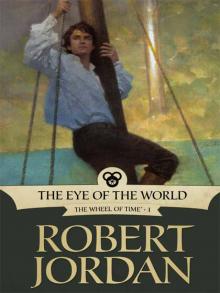 The Eye of the World
The Eye of the World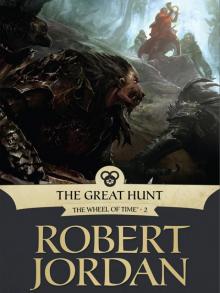 The Great Hunt
The Great Hunt Conan the Victorious
Conan the Victorious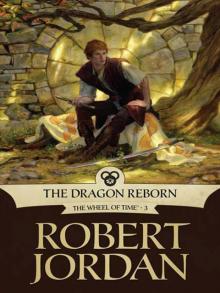 The Dragon Reborn
The Dragon Reborn The Fires of Heaven
The Fires of Heaven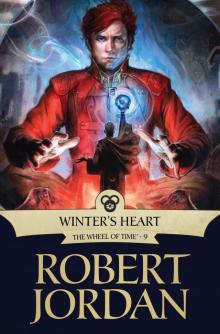 Winter's Heart
Winter's Heart Lord of Chaos
Lord of Chaos The Shadow Rising
The Shadow Rising Conan the Defender
Conan the Defender The Strike at Shayol Ghul
The Strike at Shayol Ghul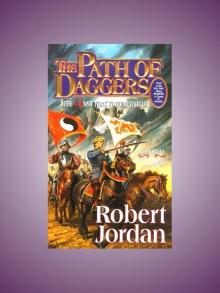 The Path of Daggers
The Path of Daggers A Memory of Light
A Memory of Light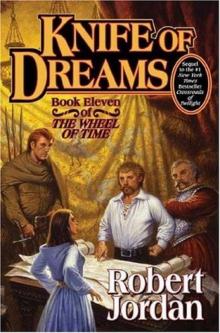 Knife of Dreams
Knife of Dreams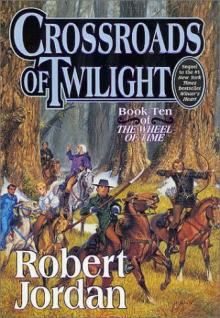 Crossroads of Twilight
Crossroads of Twilight Conan the Invincible
Conan the Invincible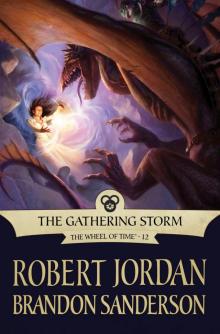 The Gathering Storm
The Gathering Storm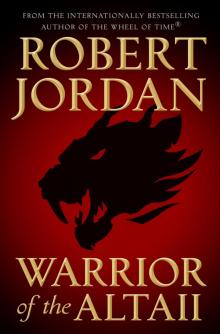 Warrior of the Altaii
Warrior of the Altaii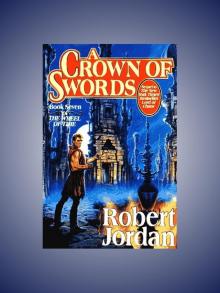 A Crown of Swords
A Crown of Swords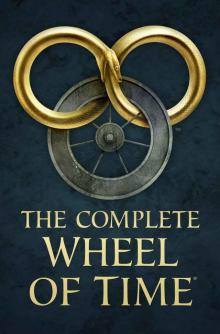 The Wheel of Time
The Wheel of Time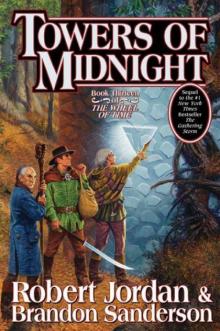 Towers of Midnight
Towers of Midnight Conan Chronicles 2
Conan Chronicles 2 Conan the Magnificent
Conan the Magnificent New Spring
New Spring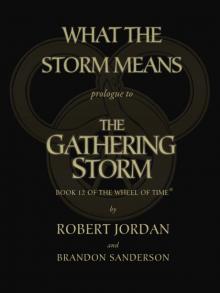 What the Storm Means
What the Storm Means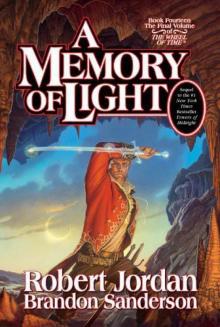 A Memory of Light twot-14
A Memory of Light twot-14 New Spring: The Novel
New Spring: The Novel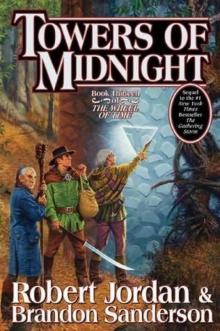 Towers of midnight wot-13
Towers of midnight wot-13 A Memory Of Light: Wheel of Time Book 14
A Memory Of Light: Wheel of Time Book 14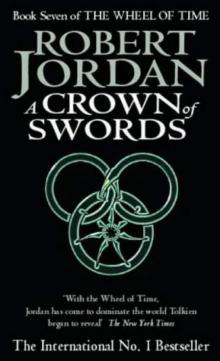 A Crown of Swords twot-7
A Crown of Swords twot-7 Lord of Chaos twot-6
Lord of Chaos twot-6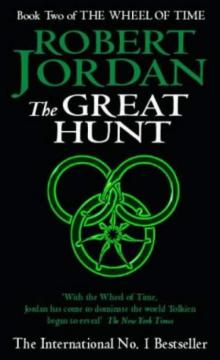 The Great Hunt twot-2
The Great Hunt twot-2 The Shadow Rising twot-4
The Shadow Rising twot-4![Wheel of Time-11] Knife of Dreams Read online](http://i1.bookreadfree.com/i1/04/03/wheel_of_time-11_knife_of_dreams_preview.jpg) Wheel of Time-11] Knife of Dreams
Wheel of Time-11] Knife of Dreams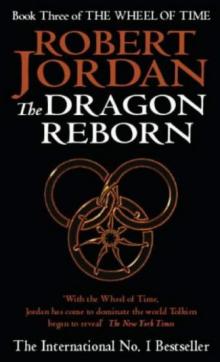 The Dragon Reborn twot-3
The Dragon Reborn twot-3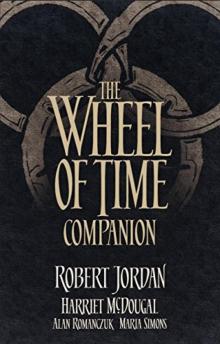 The Wheel of Time Companion
The Wheel of Time Companion The Fires of Heaven twot-5
The Fires of Heaven twot-5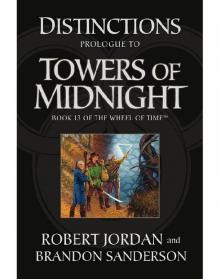 Prologue to Towers of Midnight
Prologue to Towers of Midnight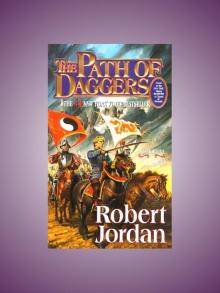 The Path of Daggers - The Wheel of Time Book 8
The Path of Daggers - The Wheel of Time Book 8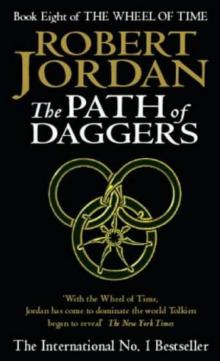 The Path of Daggers twot-8
The Path of Daggers twot-8 By Grace and Banners Fallen: Prologue to a Memory of Light
By Grace and Banners Fallen: Prologue to a Memory of Light Crossroads of Twilight twot-10
Crossroads of Twilight twot-10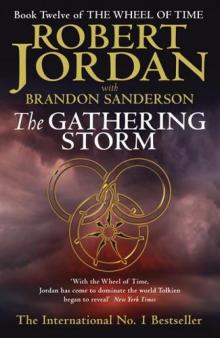 The Gathering Storm twot-12
The Gathering Storm twot-12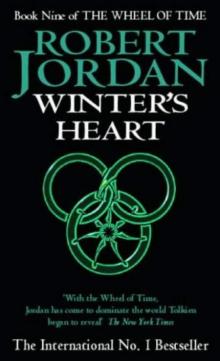 Winter's Heart twot-9
Winter's Heart twot-9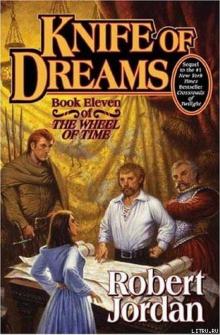 Knife of Dreams twot-11
Knife of Dreams twot-11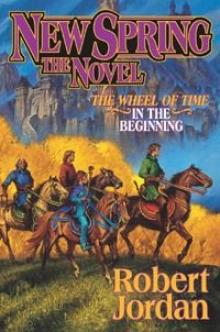 New Spring: The Novel (wheel of time)
New Spring: The Novel (wheel of time)